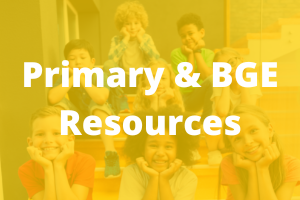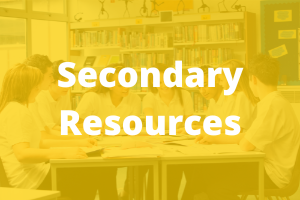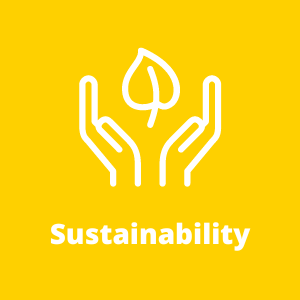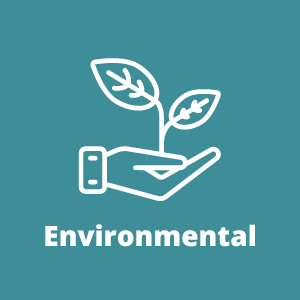
Making sustainable choices is important for everyone, if we are to meet the targets set to address the climate crisis. This same emphasis on sustainability runs through all projects within the STEM industries too.
Here are a series of resources that can bring sustainability into the classroom, asking pupils to consider solutions and apply project-based learning to help mitigate climate change.
The Academy9 Sustainable Solutions Road Design Challenge tasks Primary and Secondary pupils with designing a road that meets as many UN Sustainable Development Goals as possible. Find out more about this exciting resource here.
CLICK HERE to find out about the Sustainable Solutions Design Challenge

Scotland’s Zero Waste Plan (P1-P7 level 1/2 CfE)
Scotland’s Zero Waste Plan sets out the Scottish Government’s vision for a zero waste society.
This vision describes a Scotland where all waste is seen as a resource; waste is minimised; valuable resources are not disposed of in landfills, and most waste is sorted, leaving only limited amounts to be treated.
This plan provides the Scottish context of what we are trying to do as a country to tackle the issue.
This resource could inform a class debate on the success of certain actions such as the 5p tax on plastic bags, or the ban on single use plastics. It could also provide the basis for a sustainability discussion; identifying other, alternative ways that waste could be reduced, above and beyond those planned.
http://www.gov.scot/Topics/Environment/waste-and-pollution/Waste-1/wastestrategy
Es and Os from all areas of the CfE curriculum can be met by using this resource. The exact Es and Os for each activity are mapped within the resource itself.
You can also find lots of excellent lesson plans and ideas using the Zero Waste Scotland Primary School resource.


Transport Scotland’s Environmental Approach (S1-S6)
This site details how Transport Scotland aims to protect the natural environment through its approach to infrastructure.
It would make a good basis for a class discussion on the ways that we can mitigate the impact of human behaviour on the natural world, particularly within construction and infrastructure.
CLICK HERE to access the resources
BBC Bitesize – Sustainability (S1-S4)
The link below provides a short overview of what sustainability is and why it is important.
This page provides four sustainable associated subcategories including Tourism, Resources, Use of Environments and Living. Each sub-category has a revision section and a test.
This could be used to support a geography lesson. Pupils could be asked to sit each of these tests in a certain amount of time. Alternatively the teacher could use the revise section as lesson plan material.
CLICK HERE to access the resource
Scotland’s Environment – Waste (S1-S6)
The link below directs you to an interactive collection of data and interactive maps displaying household waste in Scotland.
It provides graphs, tables and maps which can be shown for different geographical regions within Scotland. The different waste data can be accessed by using the tabs at the top of the page.
This could be a useful tool in a geography lesson.
Pupils could be asked to compare two councils and their waste management systems by looking at the content within this webpage including waste generated per person and waste recycled per person.
Pupils could discuss reasons why they believe that waste generated/recycled per person varies between the two areas.
This may include infrastructure differences (i.e. it could be argued that remote islands may have less waste management infrastructure) or potential attitudes (those who are educated on the importance of waste management may be more likely to recycle) etc.
Once pupils have compared two areas and discussed the reasons why they believe one has better waste management than the other, they could be asked to discuss how councils/government/people could improve waste management in an area.
CLICK HERE to access the resource
Zero Waste Scotland Aggregate Suppliers Directory (S1-S6)
Provides a list and map view of aggregate suppliers in Scotland who produce aggregate material from recycled sources.
Recycled aggregates use our existing materials better, displacing the need for virgin sourced product and can save significant amounts of carbon in our projects.
Pupils could be tasked with identifying gaps in the supply chain; suggesting ways to overcome these, either through new products created through Aggregate; potentially in either an art or technology lesson, or consider the logistics of supply of both waste and finished products.
CLICK HERE to access the resource
Waste Management During Construction (S4-S6)
This document outlines waste management techniques on construction sites.
This is a two page document suitable for both teachers and S2 upwards.
Could be used by STEM teachers trying to engage their class and provide context or by pupils as the beginning of a research study.
You can also find lots of excellent lesson plans and ideas using the Zero Waste Scotland Secondary School resources.

Climate Change – Transport Scotland (S5-S6)
The link below connects directly to Transport Scotland’s website and provides technical climate change information in relation to transport.
This information could be used to support a higher or advanced higher geography class.
CLICK HERE to access the resource
Climate Change – NASA (S4-S6)
The link below provides a video from NASA which discusses how human influence has affected global temperatures.
It uses graphs to display the natural climate change factors such as volcanoes, earth’s orbit, and the sun, but concludes that it is human influence which is causing the disastrous climate change as we know it.
This could be used to support a geography lesson. Teachers could discuss the graphs in more detail, drawing on examples or read out the notes in the top left hand corner of the video.
CLICK HERE to access the resource
Climate Change Game
This game is very interactive, fun and informative.
The aim is to keep global warming to 1.5C by cutting energy-related carbon dioxide emissions to net zero by 2050.
In 2021, they reached a record 36bn tonnes a year. You must also deal with other greenhouse gases, and protect people and nature, for the planet to remain habitable.
This game is based on published scientific research and bespoke modelling by the International Energy Agency for the Financial Times.
The game tests pupil’s problem solving skills and demonstrates how complex the issue of climate change is and would best suit pupils in the final years of secondary school.
CLICK HERE to access the resource











